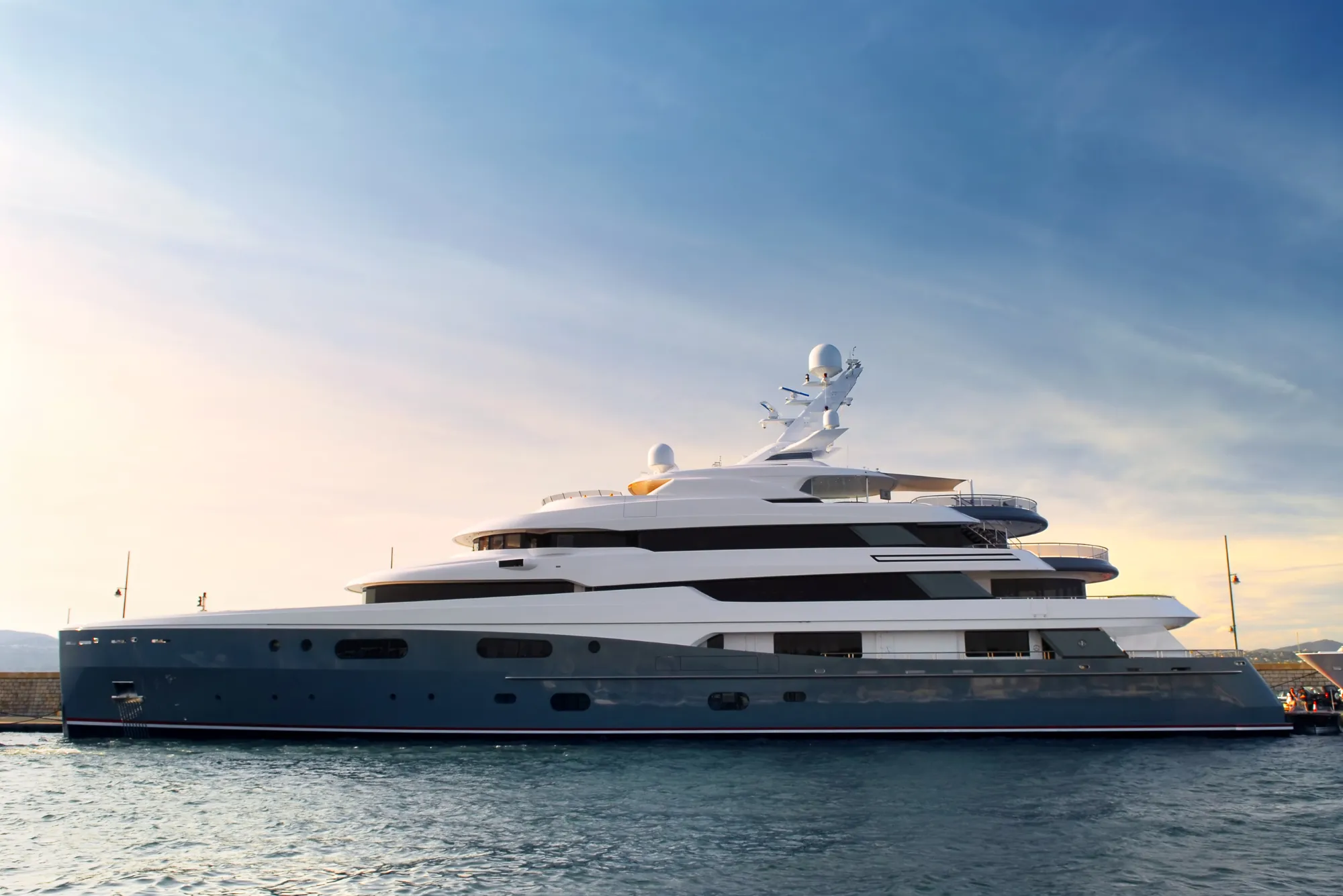Yachting and cruising on ships is an experience many dream of, whether it’s for leisure or a luxurious vacation. However, behind the scenes, the question of what fuel yachts and ships use plays a pivotal role in the efficiency and sustainability of maritime travel. Understanding the types of fuel these vessels rely on can significantly influence a yacht owner’s or sailor’s decision-making, especially when considering the operational costs and environmental impact.
In this article, we’ll dive into the different fuel types used by yachts and ships, explore seasonal trends, and provide insights into how to optimize your yacht for a smooth sailing experience.
The Different Fuel Types Used by Yachts and Ships
When it comes to powering large vessels, there isn’t a one-size-fits-all solution. The fuel a yacht or ship uses depends largely on its size, purpose, and cruising range. Here are some common fuels used in maritime travel:
Diesel Fuel
Diesel is by far the most common fuel used in yachts and ships, especially for long-range cruising and larger vessels. Diesel engines are popular due to their durability, efficiency, and the relatively lower cost compared to alternative fuels. Diesel engines are also easier to maintain and more reliable, making them the go-to choice for many yacht owners.
Gasoline
Gasoline, though less common in large yachts, is used in smaller boats and leisure crafts. It provides smoother acceleration and is easier to manage for short trips. For yacht owners looking for performance-driven, high-speed voyages, gasoline can offer the right kind of power. However, its usage is generally confined to smaller, recreational boats.
LNG (Liquefied Natural Gas)
As environmental concerns continue to rise, more yachts and ships are turning towards alternative fuels like Liquefied Natural Gas (LNG). LNG is considered a cleaner option as it produces fewer emissions compared to traditional fuels. While it’s more commonly used in larger ships and mega yachts due to its storage and handling complexities, LNG is becoming increasingly popular in both commercial and luxury boating sectors.
Electric Power
Electric-powered yachts are on the rise, especially among environmentally conscious owners. These vessels use batteries to power electric motors, offering a quiet and emission-free experience. Electric yachts are typically used for short-distance cruising, but the technology is improving, and we may see larger, longer-range electric yachts in the near future.
Mega Yachts and the Future of Fuel Choices
When considering mega yachts, fuel choices become more complex due to the vessel’s size and luxury demands. Mega yachts often require more power, leading to higher fuel consumption. As a result, many mega yacht owners are beginning to prioritize fuel efficiency and sustainability. For those seeking a premium experience, fuel options like LNG are becoming increasingly popular. However, for owners considering a mega yacht rental, understanding the fuel requirements can also influence the overall rental costs, maintenance, and environmental footprint of the journey.
If you’re planning to rent a mega yacht for an upcoming trip, it’s important to research and inquire about the fuel consumption and sustainability practices of the rental provider. For more information on mega yacht rental options.
Seasonal Sailing Trends and Fuel Efficiency
Sailing trends can vary depending on the season. During peak seasons, such as summer, many yacht owners opt for shorter, more frequent trips, which typically consume less fuel per trip. This type of usage is ideal for gasoline-powered vessels or smaller yachts, which are designed for speed and efficiency over short distances.
However, during off-peak seasons, longer voyages may become more common. This is when yachts and ships relying on diesel or LNG can take advantage of their ability to go the distance without frequent refueling. Diesel-powered vessels, in particular, excel at long-range cruising, allowing yachts to explore remote locations and navigate through challenging waters without frequent stops.
Onboard Coordination and Design: Fuel-Efficiency Meets Luxury
Luxury and efficiency are no longer mutually exclusive when it comes to yacht design. Today’s yacht interiors are not only stylish but designed with fuel efficiency in mind. The materials used in yacht construction can directly affect the weight and fuel consumption of the vessel. For example, lightweight materials and optimized hull shapes contribute to reducing drag and improving fuel efficiency.
Onboard systems, too, are evolving. With the rise of technology, yachts are equipped with smart systems that allow owners to monitor fuel usage and adjust sailing routes for maximum efficiency. These systems provide real-time data that help yacht owners plan routes that minimize fuel consumption, particularly during longer voyages. Whether for luxury or efficiency, coordinating the design of your yacht with fuel efficiency in mind is a smart move for modern sailing.
Accessorizing Yachts with Technology for a Smooth Sailing Experience
Technology is playing an increasingly important role in both luxury and performance in modern yachts. Smart yacht accessories such as fuel management systems, automated propulsion controls, and energy-efficient appliances allow yacht owners to optimize their fuel usage while enhancing onboard comfort.
For those looking to add high-tech gadgets to their yacht, accessories like solar panels, hybrid engines, and energy-efficient lighting are great options. Solar power, in particular, is an excellent way to supplement traditional fuel sources, reducing overall fuel consumption and providing a sustainable energy alternative.
Budget-Friendly Yachting Tips
While yachting can often be perceived as an expensive hobby, there are several ways to make it more affordable without sacrificing the luxury experience. One of the most effective ways to save on fuel is by planning your trips more efficiently. Opting for more direct routes and avoiding detours can save a significant amount of fuel over time.
Another option is to choose a rental service for your yacht needs. This eliminates the need for ongoing maintenance and fuel costs, while allowing you to experience different types of yachts without long-term investment. For those interested in rental private boats in St. Petersburg, there are affordable options that allow you to enjoy a luxurious sailing experience without the commitment of ownership.
Common Yacht-Buying Mistakes to Avoid
Buying a yacht is a significant investment, and understanding fuel efficiency is just one part of the decision-making process. Many new yacht buyers make the mistake of focusing solely on the initial cost, neglecting to consider ongoing maintenance, fuel costs, and operational efficiency. It’s important to research different types of fuel and how they impact the long-term cost of ownership. For example, while diesel-powered yachts may have a higher upfront cost, their long-term fuel efficiency may make them more cost-effective over time.
Another common mistake is not factoring in the environmental impact of the yacht’s fuel usage. Many yacht buyers are now opting for cleaner, greener alternatives like LNG or electric power. This not only helps reduce their carbon footprint but also meets the growing demand for eco-friendly luxury options.
Conclusion
When it comes to the fuel used by yachts and ships, there’s no one-size-fits-all answer. From diesel to electric, the choice of fuel impacts everything from operational efficiency to environmental sustainability. By choosing the right fuel and making informed decisions about yacht design, tech accessories, and rental options, you can ensure a smooth and enjoyable sailing experience while also minimizing the impact on your budget and the environment.
Whether you’re interested in a luxurious mega yacht rental or a more budget-friendly private boat rental in St. Petersburg, understanding fuel requirements and efficiency can make a significant difference in your experience. Make sure to weigh all factors carefully to ensure you make the best decision for your sailing needs.



